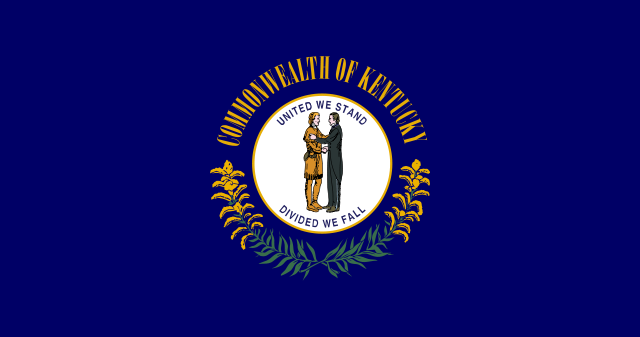
Over at Naked Capitalism, Yves Smith has penned a long post expounding on the practice of private equity firms dissuading public pension funds from complying with FOIA requests related to investment data – often with the threat of shutting out pension funds from future investment opportunities.
The post stems from yesterday’s Wall Street Journal report covering the same topic.
Here’s the Naked Capitalism post in full:
_________________________________
By Yves Smith
A new story on private equity secrecy by Mark Maremont at the Wall Street Journal started out with a bombshell, that of private equity industry kingpin KKR muscling a public pension fund to deny information requests about KKR’s practices:
KKR & Co. warned Iowa’s public pension fund against complying with a public-records request for information about fees it paid the buyout firm, saying that doing so risked it being barred from future private-equity investments.
In an Oct. 28 letter to the Iowa Public Employees’ Retirement System, KKR General Counsel David Sorkin said the data was confidential and exempt from disclosure under Iowa’s open-records law. Releasing it could cause “competitive harm” to KKR, the letter said, and could prompt private-equity fund managers to bar entree to future deals and “jeopardize [the pension fund’s] access to attractive investment opportunities.”
The article also demonstrated, as we’ve pointed out earlier, than many investors are so cowed that they don’t need to be on the receiving end of overt threats:
Once public pension funds start releasing detailed information in response to public-records requests, “that’s the moment we’re done,” said Linda Calnan, interim chief investment officer of the Houston Firefighters’ Relief and Retirement Fund. “These are sensitive documents that managers don’t want out there.”
This risk, that private equity funds might exclude public pension funds that the general partners deemed to be insufficiently zealous in defending their information lockdown, has long been the excuse served up public pension funds for going along with these secrecy demands. As we demonstrated in May, the notion that the information that the funds are keeping hidden rises to the level of being a trade secret or causing competitive harm is ludicrous. We based that conclusion on a review of a dozen limited partnership agreements, the documents that the industry is most desperate to keep under lock and key.
But the only known instance of that sort of redlining actually taking place, as the Journal notes, took place in 2003 after CalPERS said it would start publishing limited data on financial returns as a result of a settlement of a Public Records Act (California-speak for FOIA) lawsuit. As we wrote in April:
Two venture capital firms, Sequoia and Kleiner Perkins, had a hissy fit and refused to let funds that would disclose their return data invest in them. Now this is of course terribly dramatic and has given some grist to the public pension funds’ paranoia that they’d be shut out of investments if they get too uppity. But the fact is that public pension funds overall aren’t big venture capital investors. And people in the industry argue that there was a obvious self-serving motive for Sequoia to hide its returns. Sequoia has launched a number of foreign funds, and many are believed not to have performed well. Why would you invest in Sequoia’s, say, third India fund if you could see that funds one and two were dogs?
So why has industry leader KKR stooped to issue an explicit, thuggish threat? Why are they so threatened as to cudgel an Iowa pension fund into cooperating with KKR and heavily redacting the response? Just as with the Sequoia and Kleiner Perkins case, it’s naked, and not at all defensible self interest.
Law firm Ropes & Gray, which counts Bain Capital among its clients, issued what amounted to an alarm to its private equity and “alternative investment” clients over an increase in inquiries to public pension funds about the very subject that the SEC had warned about in May, about fee and expense abuses, as well as other serious compliance failures. It’s a not-well-kept-secret that many investors were correctly upset about the SEC’s warnings, and some lodged written inquires with general partners as to what specifically was going on. We’ve embedded an unredacted example of one such letter at end of this post. It was the same one that CalPERS board member JJ Jelincic used to question investment consultants last month because the letter ‘fessed up to an abusive practice called evergreen fees.
Journalists like Maremont and interested members of the public have written public pension funds to obtain the general partners’ responses to these questionnaires. And this is a matter of public interest, since shortfalls in private equity funds, even minor grifting, is ultimately stealing from beneficiaries, and if the pension fund is underfunded, from taxpayers. Yet notice how Ropes & Gray depicts questions about what are ultimately taxpayer exposures as pesky and unwarranted intrusions:
We have recently observed a surge in freedom-of-information (“FOIA”) requests made by media outlets to state pension funds and other state-government-affiliated investment entities. Although the requests have so far concentrated on information related to private equity sponsors, they have also sought information about investments with other alternative investment fund sponsors. The requests tend to focus on information about advisers’ treatment of fees and expenses, issues raised as areas of SEC interest in a speech by an SEC official earlier this year. The requests may also ask for information concerning recent SEC examinations of fund managers. Many state-level FOIA laws exempt confidential business information, including private equity or other alternative investment fund information in particular, from disclosure. Nonetheless, record-keepers at state investment entities may reflexively assume that all information requested should be disclosed. But a prompt response, supported by the applicable state law, can help ensure that confidential information that is exempt from FOIA disclosure is in fact not released.
The sleight of hand here, which we’ve discussed longer-form, that merely asserting that something is confidential does not exempt it from disclosure. In fact, if you look at the examples from selected states that Ropes & Gray cites in its missive, states have tended to shield certain specific types of private equity information from disclosure, including limited partnership agreements and detailed fund performance information, but generally restrict other disclosures not on the basis of mere confidentiality but on trade secrecy or similar competitive harm, meaning the private equity firm’s competitors might learn something about the fund’s secret sauce if they obtained that information.
Please look at the first letter at the end of this post and tell me what if anything in it is so valuable that competitors might seek to copy it. Contrast that with a second letter from a Florida pension fund, from KKR that the Journal obtained and see how much is blacked out.
The fact is that the various FOIAs focused on getting at SEC abuses aren’t about protecting valuable industry intelligence, to the extent there really is any in any of their documents; it’s simply to hide their dirty laundry. The Wall Street Journal story reports how in Washington, Florida, and North Carolina, public pension fund officials have been acceding to private equity fund “concerns” and using strategies ranging from foot-dragging to woefully incomplete disclosure to outright denial to stymie inquiries.
The interesting thing about KKR’s exposure is that its defensiveness is likely due to how much scrutiny it is getting from the SEC. Maremont earlier exposed how KKR’s captive consulting firm KKR Capstone appeared to be charging undisclosed, hence impermissible fees to KKR funds. KKR has attempted to defend the practice by arguing that KKR Capstone isn’t an affiliate. We debunked that argument here.
Even though we have criticized the SEC for its apparent inaction on the private equity front, in terms of following through with Wells notices after describing widespread private equity industry malfeasance, we have been told that the agency is in the process of building some major cases against private equity firms. Given how many times KKR’s name has come up in Wall Street Journal, New York Times, and Financial Times stories on dubious private equity industry practices, one has to imagine that KKR would be a likely target for any action that the SEC would consider to be “major”.
This is an area where readers can make a difference. The one thing public pension funds, even one like CalPERS, are afraid of is their state legislature. Call or e-mail your state representatives. If you have the time and energy, also write to the editor of your local paper and the producers of your local television station. Tell them you’ve read in the New York Times and the Wall Street Journal (and if you are in California, the Sacramento Bee) about public pension funds refusing to provide information to members of the public about fees as well as widespread abuses that the SEC discussed at length in a speech this year. Tell them that the SEC has made it clear that private equity can’t be treated on a “trust me” basis any more. The time has come for more pressure on public pension funds to weight the public interest more strongly in dealing with these inquiries, and if needed, new legislation to force more accountability from private equity funds and their government investors.

